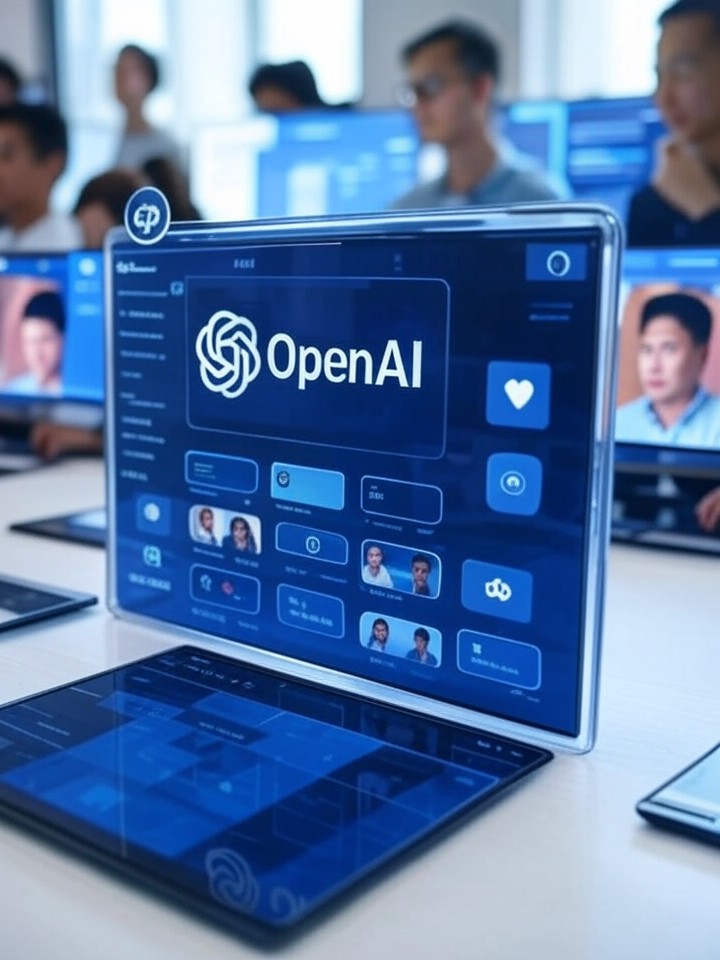Mixpanel Security Incident: What OpenAI Users Need to Know
The Mixpanel security incident has caught the attention of the tech community, particularly among developers and organizations that rely on OpenAI’s API. In light of increasing global concerns over data privacy, understanding what happened, the scope of the exposure, and the measures taken afterward is essential for maintaining user trust and confidence. OpenAI has provided transparency in addressing the situation, clarifying that sensitive data such as API content, credentials, or payment information remained secure and unaffected. This article will dive into the details of the incident, OpenAI’s immediate response, and what it means for current and future users.
Background: What Is Mixpanel and Why Does OpenAI Use It?
Mixpanel is a popular analytics platform used by many technology companies to track user engagement, API performance, and application usage patterns. OpenAI uses Mixpanel as part of its data analytics infrastructure to better understand API usage trends, improve product functionality, and deliver insights for future updates. The insights derived from this partnership allow OpenAI to make informed decisions on enhancing user experience, managing server resources, and identifying potential areas for improvement in API performance.
The Mixpanel Security Incident: A Detailed Overview
In early 2024, Mixpanel reported a security incident involving unauthorized access to certain analytics environments. The incident affected a limited subset of data, including anonymized and non-sensitive API analytics data processed on behalf of OpenAI. Importantly, no API content, login credentials, personal user data, or payment details were compromised. This distinction is crucial, as the majority of the affected information consisted of aggregated analytics that do not contain identifiable details.
According to OpenAI, the incident came to light quickly thanks to internal monitoring systems and Mixpanel’s responsible disclosure process. Both organizations collaborated to assess the extent of exposure, confirm the integrity of the core infrastructure, and swiftly implement enhanced security controls.
What Type of Data Was Potentially Exposed
The data impacted by the Mixpanel incident primarily consisted of meta-level analytics, such as:
- Usage statistics of OpenAI API endpoints
- Performance metrics, including response times and request volume
- General user interaction metrics with OpenAI’s API dashboard
Since no sensitive or identifiable data was processed through these analytics channels, users can be assured that their account security and personal information were not at risk. OpenAI’s meticulous separation between analytics data and sensitive API content played a critical role in mitigating the potential fallout from the breach.
OpenAI’s Response to the Incident
Upon learning of the Mixpanel breach, OpenAI immediately initiated a comprehensive review to ensure that its environments and data pipelines remained secure. The organization also halted certain analytics integrations temporarily while conducting a full security audit. The OpenAI security team worked closely with Mixpanel’s engineers to validate corrective measures and strengthen mutual protocols against future attempts of unauthorized access.
As a result, OpenAI has now introduced the following additional safeguards:
- Enhanced monitoring: Deploying advanced anomaly detection tools across analytics data flows.
- Tighter data handling policies: Reducing external data dependencies and limiting what analytical information is shared with third-party vendors.
- Vendor risk assessments: Conducting in-depth periodic reviews of all partners’ cybersecurity frameworks to ensure continuous compliance with global data protection standards.
- User transparency: Publishing clear communications outlining incidents, mitigations, and user impacts to uphold accountability and transparency.
How OpenAI Protects User Data
Security has always been a foundational pillar of OpenAI’s operations. The company employs multi-layered safeguards to protect user data across every stage of interaction—from data input to storage and processing. This includes industry-leading encryption methods, zero-retention policies for user content, and automated systems designed to detect irregular activities in real-time.
Additionally, OpenAI continuously improves its data protection infrastructure through regular external security audits, internal red team exercises, and collaboration with trusted cybersecurity partners. These measures ensure that risks are proactively identified and mitigated before they impact users.
What This Means for OpenAI Users
For most OpenAI users, the practical impact of the Mixpanel security incident is negligible. Since sensitive data such as API keys, prompts, responses, or payment details were never involved in the compromised dataset, there is no direct threat to ongoing operations. Users can continue to interact with OpenAI products, including ChatGPT and the API platform, with confidence.
However, this event serves as a broader reminder of the importance of continuous vigilance in digital operations. Even when third-party analytics tools are involved, clear data segmentation, transparency, and oversight are key to maintaining trust.
Recommended Steps for Users
Although OpenAI has confirmed no direct risk to user accounts, following best practices remains advisable. Users should:
- Review account activity regularly for any unusual behavior.
- Rotate API keys periodically to maintain secure access control.
- Stay informed about OpenAI’s latest security bulletins and product updates.
- Implement organization-wide data governance policies to minimize third-party dependencies.
Industry Context: Data Security in API Analytics
The Mixpanel incident reflects a broader trend in digital security. As companies increasingly rely on third-party analytics and cloud tools, maintaining full data oversight becomes more complex. Even when vendors uphold strict security standards, unexpected vulnerabilities may still surface due to the interconnected nature of digital ecosystems.
To counter such risks, leading technology companies are reevaluating their dependencies on external platforms, often opting for hybrid models where sensitive analytics are handled in-house while anonymized metrics are outsourced. This dual strategy ensures data reliability while optimizing performance insights.
Lessons Learned Across the Technology Sector
The Mixpanel breach underscores the value of proactive vendor management. Companies must ensure that third-party providers adhere to the same or higher security standards as their internal systems. In this case, OpenAI’s swift action and pre-existing data segregation prevented any significant exposure, serving as a model response for other organizations dealing with similar incidents.
How OpenAI Is Strengthening Future Safeguards
Looking ahead, OpenAI plans to maintain its rigorous approach to cybersecurity and data governance. The company’s roadmap includes increased automation in threat detection, integration of AI-driven anomaly detection tools, and enhanced transparency through regular security updates shared with users and partners. These initiatives highlight OpenAI’s ongoing dedication to building a secure, resilient infrastructure for its expanding ecosystem of products and services.
Furthermore, OpenAI’s collaboration with Mixpanel and similar platforms will prioritize privacy-first analytic frameworks. This approach ensures that insights can still be drawn effectively without ever requiring access to user-generated content or sensitive transactional data.
Conclusion: A Reminder of Shared Responsibility in Data Security
The Mixpanel security incident provides a critical reminder that data protection is a shared responsibility among software providers, third-party vendors, and end users. While incidents may occur, responsiveness, transparency, and continuous improvement are what ultimately define trust in today’s digital landscape. OpenAI’s timely and comprehensive handling of the situation demonstrates its commitment to protecting users, maintaining data integrity, and fostering long-term reliability in the AI ecosystem.
As OpenAI continues refining its security and analytics strategies, users can remain confident that their data privacy remains a top priority. This event reinforces the necessity for ongoing vigilance, collaborative oversight, and industry-wide dedication to ensuring that technological progress never compromises user safety.











